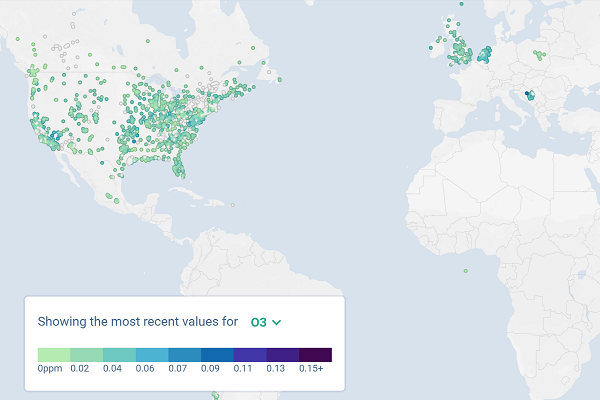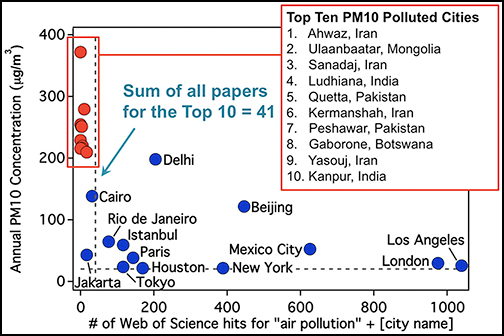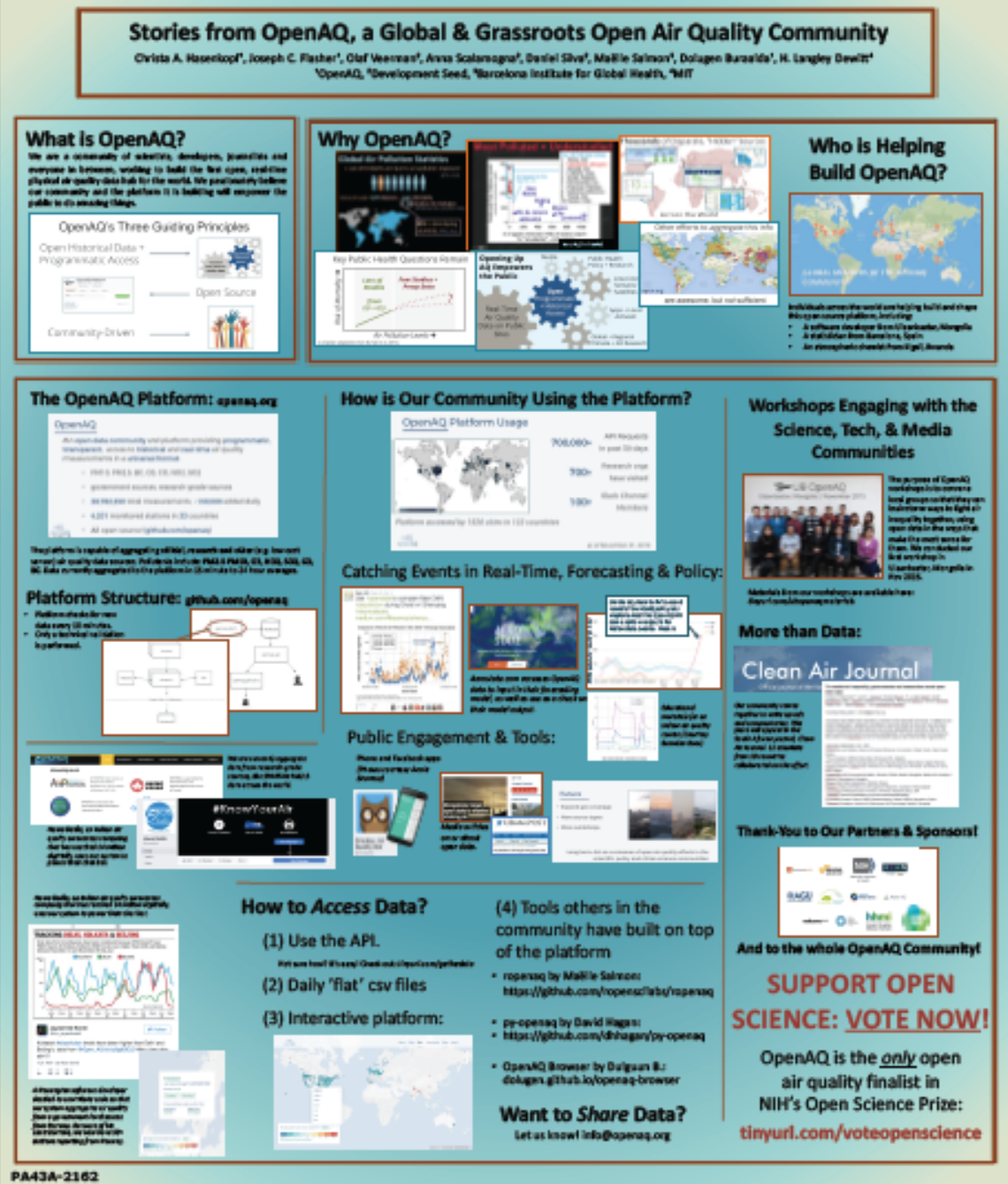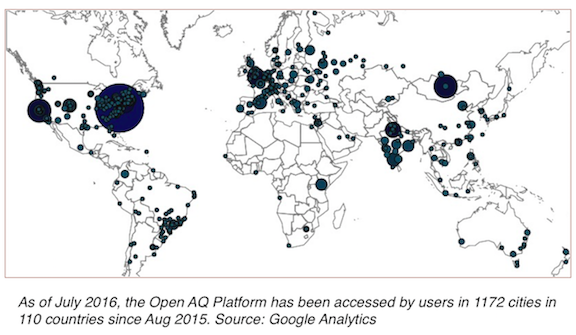Apply now to join our next cohort of Community Science Fellows and Community Leads!

Courtesy of openaq.org
OpenAQ is building the first real-time, open air quality data hub for the world to empower the public, influence policy, and enable previously impossible science. It aims to do this by engaging science, media, and tech communities at both local and global levels. OpenAQ addresses the data-gap problem in a straightforward yet unprecedented way: We take existing data available on those disparate, existing public websites, aggregate them and make them dramatically more transparent and useful to the public.
Visit openaq.org to learn about OpenAQ’s aggregated data, data source locations, and the community of researchers, software developers, educators and journalists using air quality data to fight air inequality.
For more information:
Poor air quality is responsible for 1 out of 8 deaths in the world, more than malaria and HIV/AIDS combined. This is not a problem that will go away any time soon. The most polluted places are often greatly under-studied and/or have little AQ data publicly available compared to many less polluted places.
A lack of air quality data around the world creates several gaps in research, policy and public engagement:
There are actually thousands of stations throughout the world publicly publishing air quality data. However, global and local communities do not have easy access to this information because often the data resides on obscure websites showing only current values, is inaccessible or is in inconsistent data formats. Groups that do aggregate data (e.g. aqicn.org, berkeleyearth.org, and airvisual.com), while excellent initiatives, don’t openly share unprocessed global data historically or programmatically in the forms that would make them transformational to scientific, media, and policy communities at both local and global levels.


Christa Hasenkopf
Co-Founder, OpenAQ
Christa Hasenkopf attended the 2016 AGU Fall Meeting in San Francisco, CA to present a poster highlighting recent accomplishments and next steps for OpenAQ. Click here to download her poster!
 Stories from OpenAQ, a Global and Grassroots Open Air Quality Community
Stories from OpenAQ, a Global and Grassroots Open Air Quality Community
Air pollution, responsible for more deaths each year than HIV/AIDS and malaria, combined, is a global public health crisis. Yet many scientific questions, including those directly relevant for policy, remain unanswered when it comes to the impact of air pollution on health in highly polluted environments. Often, specific solutions to improving air quality are local and sustained through public engagement, policy and monitoring. Both the overarching science of air quality and health and local solutions rely on access to reliable, timely air quality data.
Over the past year, the OpenAQ community has opened up existing disparate air quality data in 24 countries through an open source platform (openaq.org) so that communities around the world can use it to advance science, public engagement, and policy. We will share stories of communities, from Delhi to Ulaanbaatar and from scientists to journalists, using open air quality data from our platform to advance their fight against air inequality. We will share recent research we have conducted on best practices for engaging different communities and building tools that enable the public to fully unleash the power of open air quality data to fight air inequality. The subsequent open-source tools (github.com/openaq) we have developed from this research and our entire data-sharing platform may be of interest to other open data communities.

The Thriving Earth Exchange (TEX) and Amazon Web Services (AWS) are collaborating to use cloud-computing and Earth and space science to advance solutions to community challenges related to natural resources, climate change and natural hazards. After an open call for projects, four winners were chosen whose projects exemplify this goal. Each prototype is being moved to the AWS platform where they will be made publicly available for other communities to use and expand upon. Read more.

(c) 2024 Thriving Earth Exchange